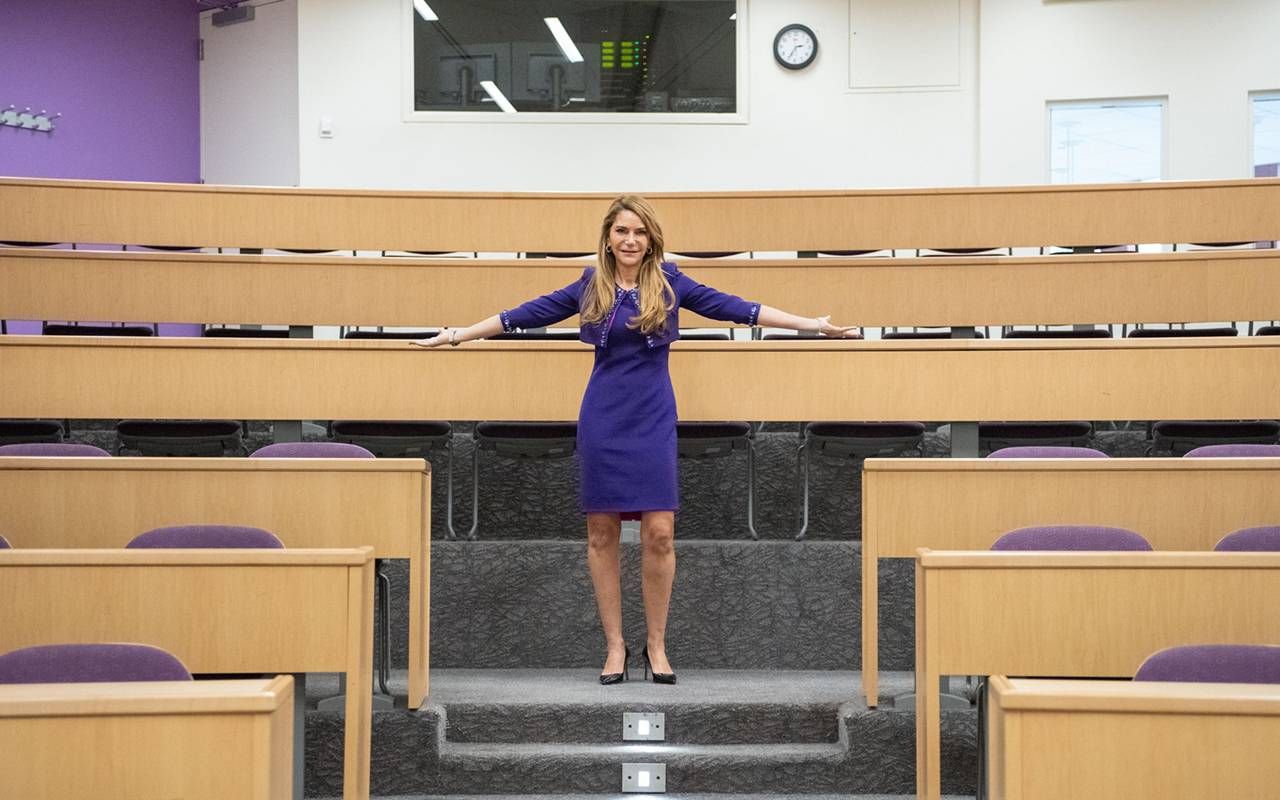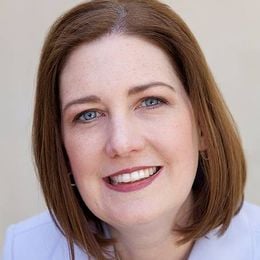The Benefits of Being a Late-Blooming Entrepreneur
Liz Elting, one of America’s richest self-made women, talks about starting a business as an older adult
Liz Elting was a 26-year-old graduate student in 1992 when she cofounded a business in her dorm room, a language-translation service that grew into a $1.1 billion company called TransPerfect. She cashed in her stake in 2018 but has no intention of retiring — and doesn't think you should, either.

Elting established a charitable foundation (Elizabeth Elting Foundation) when she left TransPerfect, and she is still looking for opportunities, saying it's never too late for older adults to start something new. "They've learned a lot by the time they're 50 plus, 60 plus, 70 plus," she said in a phone interview. "They're much wiser. They've been through a lot. They have great experience."
"(Older adults are) much wiser. They've been through a lot. They have great experience."
Elting added that older adults are likely to be able to focus better because they've already focused on their career in a practical way. "They've gotten married, they've had kids, they're now empty nesters and can make it about what they're doing next in their time — not just what they should do to pay the bills and what they should do related to their children, taking care of them and being there for them," she said.
She cited the painter Grandma Moses as an example of a legend who did not blossom until she was in her 80s.
Elting read a book about a year and a half ago by Michael Clinton called "Roar: Into the Second Half of Your Life (Before It's Too Late)." Clinton writes in his book that there are about 90,000 people who are age 100 or older, but by the year 2050, there'll be over 600,000 who are 100 or older in the U.S.
"I think his point was it used to be that we would get into perhaps our 60s — age 65 or whatever the age is — and retire if we worked and then (face) a gradual decline until we passed away," Elting said.
Live Longer, Do More
Now, things are entirely different because people live much longer; they're much more high energy and much more useful. Elting said 60 is the new 30.
Elting sold her company when she was 52, and now, at almost 58, she feels like she is just getting started. She became an empty nester recently. When her kids were young, she focused on paying the bills and getting home from work at a reasonable hour to see them and take care of them. Now, Elting can focus on all the things she's always wanted to do but couldn't.
"Some of them involve business and some of them involve other things, but I feel like often your sixties (or later) is the best time to focus on starting a business or pursuing your passion," she said.
"If worse comes to worst and it doesn't work out, you've learned something, you've met some amazing people, you have some stories to tell. And then you go onto the next thing."
Elting said if there are things that you've always wanted to do but couldn't do, those risks are worth taking. The only reason not to take them, she said, is the fear that if you do it and lose everything, how are you going to put a roof over your head or feed yourself or your loved ones?
"As long as you can get by, if it doesn't work out, the risk is worth taking," she said. "Because if worse comes to worst and it doesn't work out, you've learned something, you've met some amazing people, you have some stories to tell. And then you go onto the next thing."
What do you need to start? Elting said you need yourself, your relationships "which you should always continually work on for a multitude of reasons — for your happiness, to live a longer, healthier life. And then in business, those relationships will pay off."
"Unlike years ago, you don't need a separate office," she said. "It's nice if you have a quiet place in your home, of course, but then you need obviously the equipment (the computer, the technology)."
Start Small and Nimble
The drive to get going and to enjoy it is paramount. "You do not need to invent something entirely new to be wildly successful," she said. "It's more about an idea of something perhaps that's already been done, but a way to do it a little differently and better."
You also don't need an elaborate business plan but more of an idea of what you want to do, a gap that you want to fill, a goal of what you want to accomplish (how big you want the business to be).
"You do not need to invent something entirely new to be wildly successful."
Give yourself a deadline and then break that into smaller parts. "And then break that into smaller goals — yearly goals, quarterly goals, monthly goals, and then of course, the actions you need to do to get there," Elting said.
Discipline is key. "Many people who have wonderful ideas don't stick with it as far as certain actions they're going to take every single day to make sure they achieve their dreams," she said.
Elting doesn't believe in outside funding if you can avoid it because "then you're more careful with your money or whatever money you're working with. You don't need to spend a lot; it's more about your actions every day."
Where Opportunities Lie
What types of businesses does she see older adults starting? Service businesses — coaching or counseling services, writing, editing, graphic design, technology solutions.
Often the way to avoid health issues is by having a purpose. "The purpose is related to being an entrepreneur, starting your own business because what you're focused on probably involves interacting with people," Elting concluded. "A lot of it involves mental or intellectual stimulation. These things are so important in living a long, healthy life."
Socializing is key, but also continuing to learn new things. And by starting a new business and being an entrepreneur, you are continually doing things you've never done, and that's wonderful for your health.


